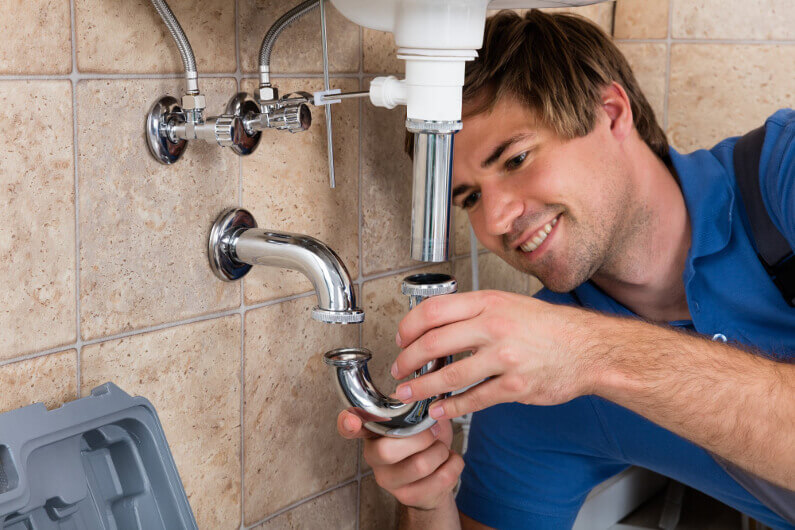Every single property owner knows that indeed plumbing problems can arise during the most inconvenient moments, yet being prepared can really make a huge difference. A thoroughly-equipped plumbing set of tools is essential for managing common plumbing problems efficiently, from broken pipes to obstructed drains. Whether you happen to be a experienced plumber or a DIY enthusiast, being aware of the necessary gadgets and gear enables you to resolve these challenges and maintain your home operating well.
The appropriate tools not just preserve time and avoid destruction and costly repairs. In this article, we will discuss the must-have items for any plumber's toolkit, along with suggestions for maintaining your plumbing systems and determining when it's time to call in a qualified expert. From urgent scenarios to routine maintenance checks, having the appropriate equipment on hand will provide you the confidence in tackling those plumbing dilemmas.
Frequent Water Issues
One of the most frequent plumbing issues homeowners face is failing faucets. This typical issue can waste a considerable amount of water over time and lead to rising water bills. A leaky faucet often indicates a deteriorated washer or a broken valve, which can usually be fixed with some basic tools and a little know-how. Addressing this problem promptly not only saves liquid but also prevents additional damage to your plumbing infrastructure.
Another prevalent issue is blocked drains. Clogs can occur due to a buildup of hair, grease, cleaning products, and various debris over time. Kitchen sinks are particularly susceptible to blockages, often requiring homeowners to use chemical drain solutions or plumbing augers to clear the obstruction. Regular maintenance can help prevent clogs before they start, making it important for homeowners to be diligent and mindful of what goes down their drains.

Cracked pipes typically arise during extreme weather conditions or as a result of normal usage. When water freezes inside the pipes, it expands, leading to cracks or ruptures that can cause significant damage to your home. In the event of a burst pipe, it is crucial to act quickly by shutting off the main water supply and calling a licensed plumber to minimize flooding and damage. Understanding these common plumbing problems arms homeowners to handle emergencies efficiently and maintain their plumbing systems properly.
Crisis Preparedness
When it comes to plumbing crises, being ready can make a substantial impact in mitigating harm and anxiety. Homeowners should have a fundamental knowledge of their pipe infrastructure and know how to turn off the main liquid supply in case of a broken pipe or significant drip. Acquaint yourself with the location of the shut-off tap, and ensure every household member knows how to reach it. This swift move can prevent inundation and severe water damage.
Another essential preparation action is to have a fully equipped crisis toolkit ready. Include items such as a pipe wrench, flexible grippers, a drain cleaner, and a bucket for drainage. Additionally, keeping a stock of towels and fabrics on hand can help manage unexpected overflows or drips. You might also consider having a basic plumbing repair manual that outlines common issues and fast fixes, so you can act quickly until a specialist arrives.
Lastly, it's crucial to build a connection with a reliable plumbing service that you can contact during crises. Knowing who to contact can save time and alleviate panic when issues arise. Many homeowners also find it helpful to schedule routine plumbing inspections to identify possible issues before they grow into crises. Proactive maintenance can significantly reduce the likelihood of emergencies and give you peace of mind.
Care Tips
Consistent maintenance is key to avoiding pipe issues and prolonging the durability of your pipe system. One of the simplest yet most effective practices is to perform routine inspections of your tubing, connections, and fixtures. Check for indicators of leaks, rust, or damage. Timely detection can protect you from expensive fixes down the line. Don’t forget to inspect concealed areas like under basins and around hot water tanks, where leaks are often overlooked.
Another important aspect of plumbing care is ensuring that your drains remain unclogged. To prevent clogs before they happen, consider using drain screens and frequently cleaning them out. Cleaning out your drains with a combination of vinegar and baking soda can help dissolve deposits and remove odors. Additionally, be https://click4r.com/posts/g/20674392/ten-indications-you-need-a-plumber-immediately of what you put in your basins and lavatories; do not disposing of fat, food particles, and non-biodegradable items that can lead to major obstructions and plumbing problems.
Finally, maintaining your hot water heater is essential for efficient performance. Check the temperature setting and think about lowering it to save on energy costs. Draining your tank heater at least once a year can remove sediment buildup that lowers efficiency and can cause overheating. If you have a tankless hot water heater, ensure the system is descaled consistently to maintain peak performance and longevity. Proper care and attention to these points not only enhance the performance of your pipe system but also provide reassurance.
